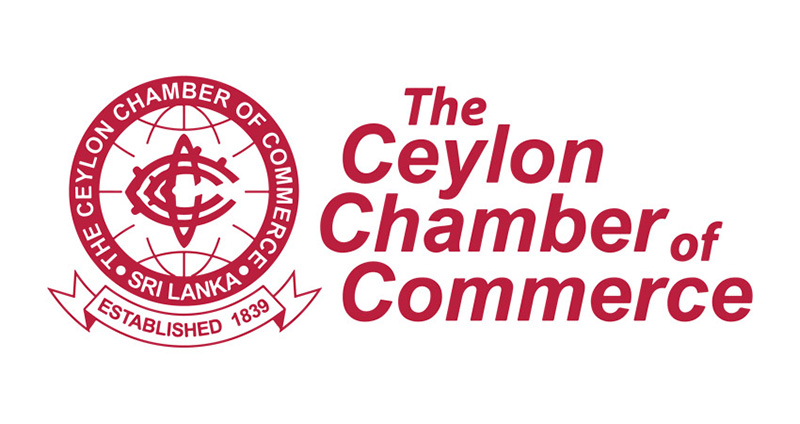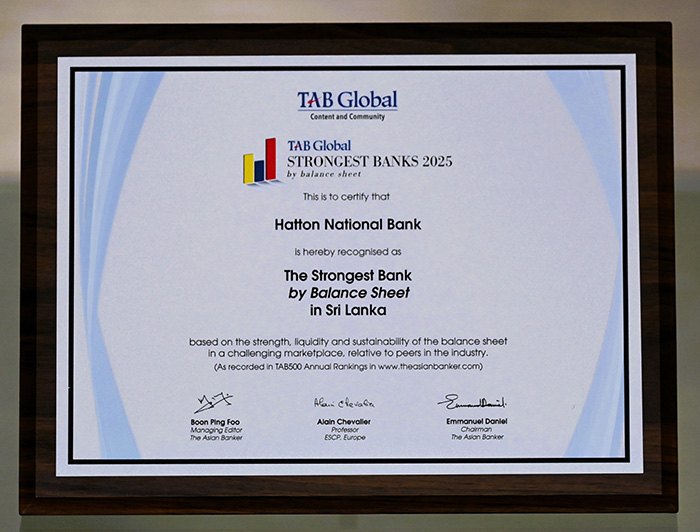Business
Three listed companies adopting share split strategy to boost liquidity & share price

Each existing EB Creasy share to be split into 100
Three companies listed on the Colombo Stock Exchange have announced decisions to subdivide their existing issued shares with no change in their stated capital in what is considered a measure intended, in the view of brokers and analysts, to increase the market liquidity of their shares with prospects to increase their price post-subdivision.
Among those companies that has announced subdivision of shares is old-established EB Creasy and Co. PLC, a member of the Colombo Fort Land and Buildings group, where a subdivision of each existing share into 100 new shares is pending.
The other two companies where subdivisions are pending are CIC Holdings PLC where a subdivision of each existing share into four has been announced and Lanka Aluminium Industries PLC where each existing share would be split into five.
Although there have been share splits since the new Company law came into effect on 2007, brokers and analysts could not recall a share split as big as what is proposed by EB Creasy which concluded its last Annual General Meeting for the year ended Mar. 31, 2020, on Dec. 30. A dividend of Rs. 18 per share (pre-share split) was adopted.
“Given that the company’s issued capital (stated capital is what now applies) was small, the Creasy share which is seldom traded has commanded a very high price on the trading floor of the CSE,” a broker said.
It last traded a few days ago between Rs. 3,150 and Rs. 3,070 with 506 shares changing hands in 34 trades. Its par value per share was Rs. 10 when par values applied. That concept went out with the introduction of state capital under the new company law.
Brokers and analysts said that there is a push-up factor possible in share splits but this has not always worked out.
“Consider an example of a company whose share is trading at Rs. 50 when a split of two new shares for each existing share is announced. Theoretically each new share should then be worth Rs. 25 but it doesn’t always work out that way, depending on market conditions. Shareholders always hope for a favourable movement from such measures,” a broker said.
CIC Holdings which has two classes of shares, voting and non-voting, will divide each existing share into four. An Extraordinary General Meeting has been called for Jan. 5 to secure shareholder approval for the proposed measure. The subdivision will apply to both voting and non-voting shares.
The CIC voting share last traded on the CSE between Rs. 184.90 and Rs. 182 closing at Rs. 182.30 with 57,601 shares transacted in 53 trades. The company paid two interim dividends of one rupee each for the financial year ended Mar. 31, 2020.
At Lanka Aluminium, each existing share will be split into five. Its share last traded at a range of Rs. 112.70 to Rs. 113.30 closing at Rs. 112.70 with 71,059 shares transacted in 119 trades. The company paid a first and final dividend of one rupee for the last financial year.
Business
Ceylon Chamber partners with members and relief agencies to deliver Cyclone Ditwah relief

In response to the devastating impact of Cyclone Ditwah, The Ceylon Chamber of Commerce has been actively supporting national relief and recovery operations in collaboration with the Government of Sri Lanka, key partners, and its members.
As a co-chair of the Sri Lanka Preparedness Partnership (SLPP) alongside the Disaster Management Centre (DMC), the Ceylon Chamber together with Janathakshan, played a central role in coordinating emergency response efforts, ensuring rapid and efficient assistance to affected communities. From 28 November to 6 December 2025, the Chamber mobilised volunteers across the Chamber Secretariat, member companies MAS Capital Pvt. Ltd – Intimates Division, Aitken Spence PLC, and university student groups, contributing more than 190 hours of service and answering over 40,000 emergency assistance requests to support the DMC’s 24-hour Emergency Operations Center.
The Chamber also provided support to the DMC for the Rapid Disaster Needs Assessment (RDNA), assisting with data analysis of calls received and the development of the direct community needs component of the RDNA, which informed government planning and coordination of relief distribution.
With the generous support of its member companies, the Ceylon Chamber facilitated the collection and handing over of financial aid and essential relief items to affected areas. The Chamber is deeply appreciative of Aitken Spence PLC, BASF Lanka (Pvt) Ltd.. CDK Philip Hospital, Central Finance Company PLC, Cinnamon Hotels & Resorts, Devi Trading Company, Eastern Merchants PLC, Emar Pharma Pvt. Ltd., Finagle Lanka Pvt.Ltd., H Connect International Pvt. Ltd., Hemas Manufacturing (Pvt) Ltd., John Keells-Cinnamon Life, John Keells Holdings, John Keells Properties, Lakdhanavi, Lauke Shipping, Oxford College of Business, Perera & Sons, Shanthi Textile, Union Assurance PLC, Union Bank of Colombo PLC, Walkers Tours, Wealthtrust Securities Ltd., and a large number of private donors, both individuals and companies, for heeding the nation’s call, supporting communities and industries hardest hit by Cyclone Ditwah, and contributing to ongoing recovery and rebuilding efforts across the country.
Beyond immediate relief, the Chamber continues to support preparedness initiatives ahead of the North East Monsoon Season 2025, reinforcing resilience and readiness across the country.
“We are deeply grateful to our member companies and volunteers for stepping up in this critical time – demonstrating once again that the private sector has and will continue to play a strong and supportive role in ensuring stability and sustainability for Sri Lanka at all times’, said Krishan Balendra, Chairperson of the Ceylon Chamber.
Business
Fluctuating fortunes for bourse in the wake of selling pressure

The CSE kicked off yesterday on a bullish sentiment, but by the middle of the session it turned negative due to heavy selling pressure. Later, though, it returned to positive territory, market analysts said.
There was satisfactory buying pressure latterly, both in retail and institutional entities, following the return to normalcy of economic activities driven by international support for rebuilding the country.
Amid those developments both indices moved upwards. The All Share Price Index went up by 60.33 points while S and P SL20 was up by 11.67 points. Turnover stood at Rs 5.55 billion with nine crossings.
Top seven crossings were: Sunshine Holdings 13.6 million shares crossed to the tune of Rs 462 million and its shares traded at Rs 35, JKH 9.5 million shares crossed for Rs 198 million; its shares traded at Rs 21, Laugfs Gas (Non-Voting) 1.2 million shares crossed for Rs 73.2 million; its shares traded at Rs 61 Tokyo Cement (Non-Voting) 730,000 shares crossed tfor Rs 66.1 million; its shares traded at Rs 87, Commercial Bank 185,000 shares crossed for Rs 37 million and its shares sold at Rs 200, Access Engineering 300,000 shares crossed for Rs 23.1 million; its shares sold at Rs 77 and Laugfs Gas 300,000 shares crossed to the tune of Rs 22.4 million; its shares sold at Rs 73.90.
In the retail market top seven companies that mainly contributed to the turnover were; Colombo Dockyard Rs 485 million (two million shares traded), JKH Rs 468 million (22.4 million shares traded), Dialog Axiata Rs 245 million (8.4 million shares traded), Sunshine Holdings Rs 198 million (5.7 million shares traded), ACL Cables Rs 122 million (481,000 shares traded) and Lanka Credit Business and Finance Rs 108.5 million (11.4 million shares traded). During the day 171 million shares volumes changed hands in 34388 transactions.
It is said that manufacturing sector counters, especially JKH and Sunshine Holdings, led the market while the banking sector also fared reasonably well, especially Commercial Bank. The telecommunication sector, mainly Dialog Axiata, also performed well.
Meanwhile, Cargills Bank is looking to raise Rs 2.5 billion through a rights issue of shares at Rs 8.50 each to support lending activities.
It also will issue 294,200,000 ordinary voting shares at a ratio of 14 new ordinary shares for every 45 existing ordinary shares. The issue is expected to raise Rs 2,500,700,000 in capital, CSE sources said.
Yesterday, the rupee was quoted at Rs 308.95/309/05 to the US dollar in the spot market, weaker from Rs 308.80/90 the previous day, dealers said, while bond yields dropped significantly.
A bond maturing on 15.02.2028 was quoted at 9.05/15 percent, down from 9.15/20 percent.
A bond maturing on 15.09.2029 was quoted at 9.50/52 percent.
A bond maturing on 01.07.2030 was quoted at 9.55/65 percent.
A bond maturing on 15.12.2032 was quoted at 10.20/30 percent, down from 10.25/30 percent.
A bond maturing on 15.06.2035 closed at 10.63/70 percent.
By Hiran H Senewiratne
Business
HNB tops TAB Global Ranking as “Sri Lanka’s Strongest Bank”

HNB PLC, the leading private bank in Sri Lanka, has been awarded the title of Strongest Bank in Sri Lanka for 2025 by TAB Global. The recognition was confirmed following the release of the TAB Global World’s 1000 Largest and Strongest Banks Rankings, with the announcement made recently
HNB’s Managing Director / CEO, Damith Pallewatte, stated that the accolade underscores the bank’s unwavering commitment to sustained financial strength and strategic resilience. “This honour shows the resilience and clarity of purpose that guide our institution. Our teams advanced through demanding cycles with discipline and accountability. The recognition confirms the trust placed in us by customers, investors and partners and it reinforces the duty we carry as a leading private bank. We remain fully committed to safeguarding long-term strength while contributing to Sri Lanka’s economic advancement with integrity and resolve.”
HNB achieves a landmark distinction in the 2025 rankings, establishing itself as Sri Lanka’s strongest bank. The assessment highlights HNB’s balance sheet quality, prudent risk discipline and the bank’s consistent ability to maintain stability through varied economic conditions. The ranking places HNB alongside leading global financial institutions acknowledged for sustained strength, institutional reliability and capacity to absorb external shocks.
Foo Boon Ping, President and Managing Editor at TAB Global, stated: “HNB demonstrated strong fundamentals and consistent delivery across multiple stress indicators. The bank’s performance placed it ahead of its domestic peers and aligned it with institutions recognised for structural strength. The ranking reflects measurable outcomes drawn from transparent criteria.”
-

 News4 days ago
News4 days agoOver 35,000 drug offenders nabbed in 36 days
-

 Features2 days ago
Features2 days agoFinally, Mahinda Yapa sets the record straight
-

 News3 days ago
News3 days agoCyclone Ditwah leaves Sri Lanka’s biodiversity in ruins: Top scientist warns of unseen ecological disaster
-

 Business6 days ago
Business6 days agoLOLC Finance Factoring powers business growth
-

 News6 days ago
News6 days agoCPC delegation meets JVP for talks on disaster response
-

 News6 days ago
News6 days agoA 6th Year Accolade: The Eternal Opulence of My Fair Lady
-

 News4 days ago
News4 days agoRising water level in Malwathu Oya triggers alert in Thanthirimale
-

 Features5 days ago
Features5 days agoThe Catastrophic Impact of Tropical Cyclone Ditwah on Sri Lanka:













